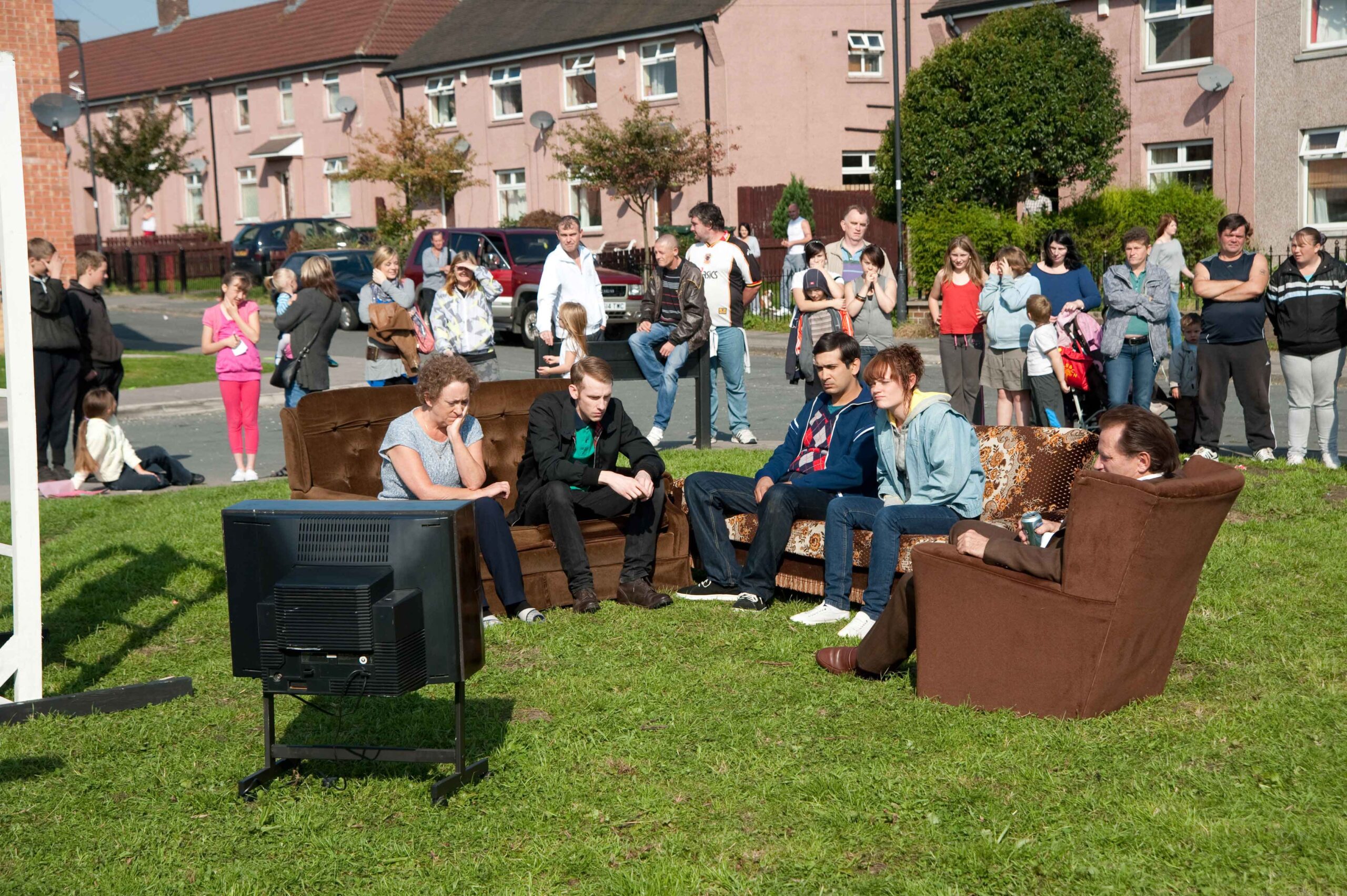Artist and filmmaker Clio Barnard put herself on the map of new British talents with her 2010 debut The Arbor, a daring, genre-bending biopic about Bradford-born playwright Andrea Dunbar and her tragic personal and impressive artistic life. Coming from a poor working class family with seven siblings, Dunbar wrote her first play age 15. She died in 1990, aged 29, and left a legacy of three plays in total. Knowing how under-appreciated her work has been, Barnard decided to revive the life that imbued Dunbar's creations. Rather than staging a conventional documentary, the director features interviews with family and friends, performed and lip-synced by actors in front of the camera. She also adds re-enactments of the plays that feature the estate where Dunbar grew up, as well as archival footage of her TV appearances. The Arbor is an experimental documentary, but that doesn't prevent it from being touching, humane, and a special tribute to art flourishing in adverse circumstances.





